Redback spiders
Human Rights Commission, concerning the Stolen Generation.





Opening the Cupboard and Letting the Skeletons Tumble out.
Watch out for the Red-back Spiders under the Stairs.
By ’Ric Williams.
What’s in a Name?
Known as “Siddie” as a boy. What a bloody awful name. I can think of only one worse similar name “Cecil”…both sissy names. I fought a lot at school because of that name. The name both nicknames come from is “Cedric” which makes me shiver in disgust. How could parents load their kid with such a moniker? Well, it was because of an uncle, a younger brother of mum, who died straining fencing wire when he was 18 and the windlass snapped back and crushed his temple. Agnes Witcher his girl friend never married because of his memory. She used to make wreaths of wild flowers and place it on his grave every year on his birthday. There’s devotion for you.
These days a girl would be in the back seat of a car groaning with another guy before the worms had started their business underground.
*******
Williams may be Welsh now but it came from the Norman lords who stole estates in Wales and made the people into serfs.
Williams meant those serfs belonging to Williams or Guillaume (Norman French).
So David Williams could have started out as Dwyffid Gwillms or a number of variations.
It was later complicated by another custom of David Williams meaning David son of William, but the father’s name could be William George (William, son of George.)
So the whole issue is muddy and we cannot say there is one great Williams Family all related. We might be or we might not be related.
That is the price you have to pay being a defeated people enslaved by Saxon and then Norman overlords
.The Welsh do not even have a famous battle where they were defeated like Colloden or the Boyne . No, the invaders came in gradually and squeezed the Welsh into the valleys and down into the pits to dig in the dark all their lives with the blind pit ponies.
WARNING This writing is a bit unconventional, rambles on, breaks off, repeats itself sometimes and then continues on . In fact it is just how an unconventional old character, certainly not a hero, would talk.
In the flesh though, I talk too loudly, as I want to hear myself since I am half deaf. Too vain to wear a hearing aid, I guess a lot of content of conversations directed at me and sometimes get it wrong, because there are many blank stares in my direction.
Yes, it is the way I am and I am too old to change. You can’t teach an old dog new tricks, especially if I (the dog metaphorically) was hard-headed when young and thought it knew just about everything already, and just had to fill in a few spaces. I did not realize that my head was the biggest blank space and there was a lot of filling to do.
My dad said once that youth is wasted on the young. He must have gotten that out of a book, though I hardly ever saw him read, except the paper and then usually the racing form.
My nana wrote in my autograph book when I was about ten: “Life is full of froth and bubbles. Two things stand like stone. Kindness in another’s troubles. Steadfast in your own.”
My other grandparent Lucy wrote “Laugh and the world laughs with you. Cry and you cry alone.”
Aussies don’t like whingers and complainers. Well I am whinging a bit in these pages. Last chance to do it.
The only other bit of advice I can remember was our minister telling us: “What is the definition of a cigarette? (answer) A fire on one end and a fool on the other.” I followed that one and have never smoked, or wanted to.
The man of God also said “Sexual intercourse when unmarried is a sin.”
“He meant” said my classmate afterwards, “only do it with married women.”
The idea of putting your wee-wee in a girl’s thing was highly disgusting for me thinking about it as a twelve year old. The whole idea was dirty, yukky.
Fancy asking a girl to do that! She would never talk to me again. Except Moira Carrington, maybe, who lived next door. I saw her do a funny thing with her cousin, which was something like that but she was doing something with her mouth and that was even more disgusting.
They didn’t see me watching through the palings. A few weeks later Moira, who was playing on her own called over the fence to come and play with her, but I remembered the things she liked to do and said “No thanks.”
She kept on and had a strange eager look on her face and told me “You won’t be sorry, Siddie.”
I got angry and said “I’m not like you. I saw what you done with Georgie under the verandah.”
“Oh!” Alarm shot over her and she started crying “Are you going to tell?”
“Yes,” I replied cruelly “I’m going to tell everyone at school what you done and the police will take you to Parramatta Girl’s home and lock you up.”
Poor Moira gave out a little scream and ran inside. I was only joking. I never told anyone until this day. Now I suppose Moira is an old grandmother getting the pension like me and doesn’t even remember what happened then.
But I still do. I recall a couple of years later when I had started to appreciate the possibilities of being alone with Moira, I asked her to go to the pictures (movies) on Saturday night.
She glared at me and said “ My boyfriend is bigger and stronger than you and he can knock you down. He is sixteen and I think I will ask him to make mincemeat out of you.”
Now it was me who was afraid and I kept away from Moira ever afterwards.
********************************************
Not having smoked saved my life after I had hit a car with my motorcycle. After partial recovery a doctor said “When you lost a lung you would be dead now if you had been a smoker.”(The lung finally got better).
In these pages of anecdotes, I might swear occasionally in writing and hit on some taboo subjects. It will not endear me to my numerous relatives, many of whom probably wish they didn’t have me as one. Too bad.
There may be some pages that are repeated. I cannot unravel it and have given up trying.
*****************************************
BETTOWYND (was it a corruption of “Better Wind”?) Curiously some children’s names of Harry Williams were Olwyn (Ollie). Alwyn (Alley changed to alligator then Gator) The dictionary meaning of Wynd is an “alley.” Lynn (or Lyn) another son has a Welsh meaning.
Bettowynd backwards is DNYW OTTEB which looks Welsh. Colwyn spelled backwards is NYW LOC(could that be Welsh for New Lake? These things may have no relevance, but I remember Grandfather Harry spending a long time Sunday morning doing the Sunday Sun cryptic crossword. He had a mind for hidden meanings.
I do too. I look for hidden meanings.
I spent weeks spelling names backwards and found out most common names are also names reversed. Our ancestors did this on purpose way back in pre-Christian times and the names survived, though the spelling is a bit off over time. They believed there was magic in names and the life of a child was determined in part by its name.
For example RUTH reversed is THUR (Thor, a Norse God). KENNETH rev. is close to Hank ( Htennek) ROSE is Esau (Esor). Often the reversed is feminine from a male name. Very curious.
Try your own name and see. Some more: James rev. Semaj (Shamus), Gregory rev Roger (yRoger g) Karl rev Lark, Elizabeth rev Elisha, or Theba, ROLF rev FLOR (a flower in Latin) and so on.
THE START
The illustration shows Bettowynd, with Grandma Lucy sitting, taking a rest, Grandfather Harry sawing a log, ( though the illustration seems to suggest he is sawing his own leg off,) a muscovy duck, a chook (chicken ), a cat, a couple of dogs, but they were really Alsatians and a blue cattle dog and of course, a crow, (of “stone the crows” renown).
This Aussie expression, I have never come across in America or Canada, not even in Newfoundland, which has preserved a lot of the old English turns
The illustration of Bettowynd and does not show the millions of flies or the myriad ants, both black and red bull-joes, which we kids would make them fight each other( the reds always won) and meat ants ever searching the ground for scraps.
There were snakes, goannas and blue-tongued lizards and the occasional wallaby over the fence in the bush.
“Bettowynd” as a structure, was better than a humpy, but not up to specifications as a house. That is why the Williams family could never get electricity connected. They used oil lamps and kerosene pressure lamps and went to bed early.
A water tap was installed at the front gate after years of persuasion to the water board. Even then they had to pay for the water line to extend down to the bottom of First Ave from the Funda’s place.
The Funda girl (the family had come from either Switzerland or maybe Czecho-Slovakia) was in my class in primary school and had a crush on me, but I “hated” her and pined for the disdainful looks of another, Dianne Hornby, whom I “loved” passionately at thirteen, though I had never even touched her hand. I can still see her tucking her hankie up her lace-trimmed white panties after she wiped her cute little nose.
She saw me peeking across at her desk ( I was strategically seated) and tossed her proud little head. Alas, cruel destiny. She was never for me. In vain my obvious pulsating member sent her E.S.P messages of urgency.
There was frantic need for it to subside before Latin period ended, when we had to walk to another classroom. Then everyone would notice the bulge pushing my trousers out in front and I would have to run away from school in shame and live down the bush in a cave my uncle Ralph had found. I would never be able to come back to civilization, because everyone would know I had a hard–on in class for Dianne Hornby.
I would loiter, electrified in anticipation in front of her mother’s flower shop, near the cemetery gate, hoping for just one glimpse of my princess.
These trysts were noted, as her cousin, the freckled, redhead Joan, told me at recess one day, near the boys bubblers and the rose garden where I had planted a rose and labelled it “To my secret love,”
“ Dianne thinks you are dopey and wants you to know it.”
How cruel these words to a smitten fourteen year old, already demoralized by several pustules on his chin and worried about nocturnal emissions staining the sheets and getting belted for it by my father. I was unwise in the world of life and love.
**************************************************************** Back to Bettowynd:
Before this, they depended on rain into their corrugated iron tank, and long hauls of water from the cemetery tap, five hundred yards the boys carrying cut-down kerosene cans.
The place was constructed by grandfather Harry (Henry Inglis Williams) with the help of Gator ( Alwyn= Alligator= Gator) Williams, Colin Williams, Ralph Williams, some of his sons about 1933 on 5 acres of leased, sandstone rocky, fairly barren, scrubby land that was in my father’s name, (Hector Griscom Williams).
Dad let his mum and dad and siblings (the ones who had not yet left home,) which included one girl, Aunty Ollie, build there because they were being evicted from Gray St, Sutherland for non-payment of rent, during the Great Depression when no-one could get a job, or it seemed so.
Grandfather Harry was a carpenter and if he had been able to afford the building materials, he could have made a more substantial house, as he had before, working around the district on various building projects. This fact was pointed out to me by Ruth Ross, his granddaughter, since she thought I was not respectful writing of my grandfather
I circulated some unfinished drafts of the family stories via e-mail several years ago and they created alarm. It appears that only the good things of a family member must be brought to public attention.
As an adult revisiting Sutherland I met an old man in a park and got to talking. He had known my gr. Harry. He said he and Harry were walking through the cemetery one day and they came across a bottle on a grave that had been left by chance. Harry recognized it as a full whisky bottle and the two of them sat on the grave and “polished off the bottle.”
My grandfather said “If they left the bottle for the corpse, he don’t need it no more, and we are doing him a favour.”
If someone is brutal, drinks too much on occasion, beats up his children and wife, then should this be kept hidden and unsaid for the sake of a family’s good name?
Starting with William Nash, our ancestor on the First Fleet to Australia and continuing to the latest generations, there have been some real bastards among us, in both senses, ( I am not excluding myself,) yet most of them have worked hard and brought up families and the tribe goes on ever-expanding.
I am respectful of Harry, but he had his faults.
A skilled carpenter and sometime cabinetmaker, he had worked on large construction sites previously, notably the Hume Reservoir, and the Woronora Dam, not far south from Sydney..
The Hume reservoir was being built not so far from Nimmitabel and the Williams’ family runs, across the Snowy Mountains to the Victorian border with N.S.W. where the Murray River flows.
Banjo Patterson’s poem “The Man from Snowy River” could have alluded to our family, because a great, great grandfather was herding in the snow country at Jyndabyne, caught pneumonia and died from overwork and exposure. It was a hard life.
There were also bushrangers around. Ned Kelly was born and ranged quite a few miles away in Northern Victoria and the Southern Highlands. There was cattle duffing going on closer to the Williams’ homesteads. mostly unbranded calves.
Either my family was lucky or honest. Though hanging was not probable as it had been in England if you were caught stealing cattle, the best hope if convicted was a few years in the Braidwood Gaol.
Checking the records online of the old Braidwood Gaol, I see there were some Williams’s incarcerated, but any connection with our family has not been established. They were probably other Williams’s, right? Or maybe they were in the excommunicated family section, my predecessors.
Gr. Harry was a cattle drover in early life and worked on the family farm with his widowed mother and six brothers, the eldest being George and his sisters. He drove mobs of cattle from southern New South Wales up to Queensland on the Darling Downs. Some stories say he was an independent contractor but more likely he was just an Australian-style cowhand, though I doubt he carried a six-shooter like in the movies. We know he had one in later life. A Lee Enfield .303 rifle was more likely.
His own father, John Williams (II) had died in an accident with a dray and runaway horses. There had been talk that this ancestor was liquored up at the time, but I think that was unlikely. Anyway he was crushed by a wheel and died later.
Poor bugger. He wasn’t very old to die. His widow was left with little money ands a number of children to provide for. My grandfather was the youngest son. There was no government welfare in those grim, sink or swim times. I cannot imagine how they could have survived, though they had a small selection and a few head of cattle.
Great uncle George, the eldest boy acted as a provider for the family and was particularly fond of the youngest boy, my grandfather.
When my Great Uncle George came with his wife to visit at the old home in Gray St years later and grandfather had a growing family, on greeting Harry, Great Uncle George gave him a kiss. Harry was still his littlest brother in George’s mind.
I think George went away to the South African war for several years, but I am not sure about that. There was a Boer War helmet, hanging on the hook of the hat stand generations later. I think I heard it was Great Uncle George’s and it was left there for when George came back. But Great Uncle George had already died, though no one threw the hat out. That would have been disrespectful.
******************************************************
My other grandfather, Dick O’Keefe brought up his family from Tasmania, when he got a job on the Hume, also. He had worked in the Beaconsfield gold mine, but because it was being mined too deep and water was hard to pump out and the high incidence of silicosis, the mine was closed down.
It was said that Dick O’Keefe was one of the agitators to have the mine closed, but I don’t see him doing that because it left him without a job. He had to move to the mainland looking for work.
There may have been other reasons such as a gold shipment being stolen. (Some O’Keefe brothers were arrested but discharged from lack of evidence, as the jury had a lot of Irish descent among them.) Some of the family, my gr. O’Keefe’s cousins and his brother moved to Western Australia and miraculously became rich buying mines and hotels in Kalgoolie. (where did they get their stake?) His brother George O’Keefe had gone first a few years before, leaving his betrothed Ida Woot(t)on behind. She married the younger brother Dick and became my grandmother. She enraged Dick often and maybe that is why he chased her with the axe, with bursts like “I should have married your brother George. He is twice the man you are!” The truth was she was jilted by George who may have left partly to get away from Ida. He did not wait too long to marry in W.A. One of his daughters got the O.B.E during the Second World War from King George VI for her nursing services on the front line.
Nana O’Keefe had an old style Tassie accent, closer to the original first settler-convict jargon. For example she would say “chimbly” for chimney, and we kids used to laugh at some of her expressions. I suppose today down at Exeter and Beaconsfield some people still say “chimbly”. Maybe it was early cockney. Anyway her speech was very descriptive and I would really like to hear the dialect again.
I’ve talked to a number of Australians who deny there are regional accents in the Oz. However a South Australian speaks more like a Kiwi from the South Island and sounds a bit lah de dah to a Redfernite (before Redfern became migrant territory and I’m told is now a site for urban aboriginals.)
I won’t mention North Queensland dialect, “well.” Canadians often end a sentence with “eh?” in the same way “well” is used in Queensland. I hope regional dialects never go away. I love to hear them.
When the work cut out on the Hume, both families and many others migrated to the outskirts of Sydney, where Woronora dam was being built. They both settled at Sutherland which was on the Illawarra railway line to the south coast and forty minutes or 17 miles from the centre of Sydney by steam train.
Harry made grandma’s chest of drawers and he could dovetail so perfectly by hand that the joints fitted with no gaps. My father related that when times were good Harry would take an example of his work to a prospective employer, and it was usually the dove-tailed joint that got him the job.
I have done a fair bit of woodworking myself, but I would never attempt the dove-tailed joint by hand, after my first disastrous tries. In fact even with modern machinery and a dovetailing jig, I could not match my grandfather handwork.
My mother’s father, Dick O’Keefe had also worked on these same dam projects as a carpenter and they knew each other. That is not to say they were friends. I have never seen them talking together, though Sutherland at that time was not a large town.
Harry was a bit hard to get along with though. He was taciturn and rather tough- looking. In fact he seemed a dangerous kind of man. That is nor to say he was. No-one would say that to his face.
It was related that Harry could jump the front fence of the house in Gray St with his tool bag and his work boots on.
Another family fact comes to mind. Grandma Lucy could touch the tip of her nose with her tongue. Actually I can do that also, but only if my uppers are unattached.
There is the story that there was in a domestic dispute and someone called the police. When the policeman came along to Gray Street on horseback, Harry was down in the long grass, his Boer War revolver at the ready and shot a crow from a branch above the constable’s head. There is more to the story, but Harry was not arrested. Police did not interfere as much in those days.
Harry was a strong man but only about five feet nine tall. He had light brown hair with a reddish tinge and when I knew him was going bald. I think his eyes were blue and sometimes he grew a gingery beard streaked with grey.
He had been involved in a fall at work and became incapacitated enough to get a small pension in his fifties and then got the old age pension, until his death in his eighties.
He is supposed to have been brutal to my grandmother on occasions and used a razor-strap on the kids occasionally. This was the norm in those rougher days.
However, it was said he came home drunk one evening and swung his daughter around his head and, on purpose or by accident, let go, and she fell, and suffered injuries that caused her to walk unevenly the rest of her life.
Her daughter, Ruth Ross has another explanation, of course and I don’t now what is true. I am just relating family stories.
Harry, bitten by a red-back spider, was a week in bed but recovered. Another time, not wanting to go to the dentist he extracted one of his teeth with his pocket knife and a pair of pliers, ( possibly with some whiskey to kill the pain, though my dad said Grandpa didn’t feel pain much..) He smoked a pipe and drank, yet lived into his eighties.
I must say in all the years I visited the old house as a little child, he was gruff but kindly to me and I never saw him do injury to anything.
In fact I recall myself and my older uncle Ralph were shooting birds over in the cemetery and brought three or four back. Ralph was scolded by grandfather, who told him they were Bell-birds and should have been left alone. Ralph skinned the birds and gave them to the dogs. I was sad about that.
Another time Gator had waded into Brown’s creek and speared a big stingray, then cut off the flaps and I helped him carry them up the hill. There was a lot of meat on the flaps, but grandfather scolded him and said he should have left it alone.
I took a few pounds home to mum, the dogs got some too, and Gator gave me the bony barb which I kept for a number of years.
There was an incident when I was about two or three when Grandfather Harry unstrapped my braces, because I remember they had been twisted after I used the notorious toilet to do wee wee and I ran home crying.
My father must have thought grandfather hit me or was interfering with me in some way because he came and confronted Harry, who told him to get the hell out of the house and raised his walking-stick to dad.
Dad took the stick, broke it and knocked his own father down. I know what it feels like because recently one of my sons, aged seventeen took a crack at me and knocked me backwards. Admittedly I had slapped his face for bad manners after several warnings, but it makes you feel sad your own son hits you.
I have always felt gr. Harry was unfairly treated because he was only helping me straighten my braces.
He liked me though, and when I was little, would give me a large piece of marbled cake and a glass of lemonade that was mixed from syrup from a green bottle and water added and stirred.
One time visitors came, some family members, who were a little higher up the social scale. One of the boys was serving them tea in a dainty cup from the special set in grandma’s china cabinet. He was being on his best behaviour and even elected to put in sugar. How many spoonfuls do you want Aunty Edith?”
“Two, thank you, Alwyn”.
Whereupon Alwyn (Gator) put in two tablespoons of sugar. (They put in a lot of sugar at Bettowynd.) Not teaspoons as the lady had expected.
“There you are, Aunt Edith. It’s already sugared and blowed.” That was referring to the practice of blowing into the tea to make it cooler.
I would return to the house after chasing wallabies down Brown’s Creek and other important things a seven-year-old would do alone, unsupervised in the thousands of acres surrounding Bettowynd.
Nowadays in Canada children are supervised and never let run free. In all the years running around on my own I never had any frightening experience or was in danger from people.
Admittedly I kept away from any stranger, but the only perilous incidents were nearly slipping down cliffs, falling off trees, being stung by bull-ants or wasps and bitten by snakes.
I remember you got fresh bracken root, pulverized it with a rock and rubbed it on a sting and it soon felt better. Where did I learn that from?
*************************************
Back to the building. There was no money for materials for a house and the family had to have shelter.
Unlike my dad, or in later years myself, Grandfather would not take something that did not belong to him. He had gotten a gold medal for bravery years before, diving into the water from a gold dredge at Araluen and saving a workmate from drowning and so grandpa had a certain blind integrity, such as not wanting to apply for the dole, even when his kids were hungry.
Grandma put up with this attitude until the family was down to eating porridge with no milk or fried bread and dripping and then she said “Harry, if you can’t find work in the next couple of days, I am going up to the council committee and applying for the dole. We have to eat.”
Harry gave in and shamefacedly lead the family up to the School of Arts Hall (where my uncle Gator many years later used to borrow his six cowboy books a week (all with the same plot) and applied for the dole.
The O’Keefe family and the Williams’ later got connected through the marriage of my mum and dad.
In later years at school when we were taught the poem “Bellbirds”…Down the dim gorges the bell-birds are ringing….” I would choke up in class, when I remembered Ralph and me shooting them.
“You are not crying, are you Williams? Look, Siddie Williams is crying, everyone.”
“Shut up, Reilly. I’ll get you in the break.” I warned him.
Reilly did shut up because even if I was crying ( there was a piece of sand in my eye) I was the best fighter in the school.
My mum and grandma Lucy became friends and Colin fairly friendly coming down to visit as a teenager on his fixed-wheel bike.
Ralph had a freewheeler. He used to hang around my mother, who said he looked like a “Greek God”. Maybe I got the wrong idea about his visits. In looks, my son Brian reminds me of Ralph a lot. Sorry Coral (Ralph’s daughter) I could be wrong about what I said.
Gator was liked by everyone. He was always shy though. When there were visitors he usually made for the back door and ran down into the bush when he was young.
He started to carry heavy logs of wood for the fire uphill when he grew older , but though he appeared very strong, he had a congenital bad heart and it eventually killed him in his forties. He was however my favourite uncle.
Jackie, my cousin and four years older, who was abandoned by his mother Dorrie and put with grandma to grow up by Happy (Lau (w)rence) his father, was my companion around the bush for a few years. I liked him a lot, but not everything about him.
Even in pre-puberty he was pre-occupied with sex and he tried to interest me in various sexual acts, but I would have none of it. “That’s dirty. I’ll tell my mummy..” but I said nothing because mum might not let me go out into the bush and play.
Happy, whose name I think was Lawrence married again eventually a woman from south Africa of mixed blood. She was fairly overweight. In fact she was a kind of charicature of Grandma Lucy. They say some men yearn to marry women like their mothers.
The Williams men of that generation had some strange marriages.
Harrie ( I will tell you why his name is spelled like that later on) married Floss, and it has been said she was not well healthwise when she married.(I don’t suppose I can mention what it was she had, because my cousins Arthur and Bryce might still be alive and might come over to Canada to clobber me one.) Several children came from that union, but one day she left the family and the boys lived with their dad, in their rented house in Caringbah, ( which later became a post office.)
Lin (Lincoln?) married Aunt Dulsie, whom I did not know very well, but I think she looked down on her husband’s family. There were some children. I can’t remember their names. During the depression Lin kept his job as electrician but accepted a cut in pay but signed for the original amount. To my union-oriented leftwing mum and dad, this was cowardly.
When the depression was ending and the other brothers got jobs ( they were mostly all electricians,) and had correct rate of pay, Grandma took up a collection for “poor Lin’s family. He is not getting his full wage, you know.”
“Too bloody bad” said dad “He was working for a scab’s wage when I was out of work and on the dole. He didn’t help me…and anyway, I would not have taken any of his scab money.” Dad had two fingers missing from his right hand, a reminder of Lin’s bad aim with an axe, when they were chopping sticks for the fire. Dad, Hector, was eight years old when it happened.
He worked all his life missing two fingers. They were phantom ones, too because he said they itched and he could not scratch them.
My dad had originally applied for the land from the N.S.W. Lands Department on a 14 year lease with option to buy at the end of the lease.
He had taken his eighteen-years-old year old wife Marjorie (nee) O’Keefe and myself, then a squawking baby, to live in a humpy made of corrugated iron and bush timber. The iron was stolen at night from the old steam-tram shed of the discontinued line to Cronulla from Sutherland station.
Dad trudged back and forth carrying three sheets at a time all night until dawn across the railway bridge and over through the cemetery, to evade the town policeman, who checked the local shops on his horse at night..
The land was situated where 1st Ave Loftus is now, at the south-western corner of Woronora cemetery.
It was fortunate that there was a cemetery tap near that corner, so dad used to have to carry two kerosene tins a day down to the camp so mum could wash my napkins (diapers.) though she did the messiest part in a little soak which was not deep enough to be a well and when it had rained enough. The ground was made up of sandstone broken down into sandy soil and any water from when it had rained recently and had not drained away, was thick with mosquito wrigglers. That meant also that there were many mozzies (mosquitoes) especially at dusk, and you were swatting them constantly.
Mum made up a mosquito net out of old bits of netting sewn together for me but my parents just had mosquito coils burning in saucers on the floor. When there were no mosquitos coils, which cost money, then dried cow-dung smouldering in the open grate served the purpose, if you could put up with the smell and smoke..
The water was also for the billy of tea they drank with every meager meal. There was no money for soft drinks and frozen orange juice was unheard of those days. Sometime mum would ask Louie the fruiterer for some overripe lemons (free) and she made lemonade, mixing it with golden syrup.
There was no ice-box , but dad contrived to make a cooler out of discarded pieces of softwood and he covered it with dripping Hessian made from a chaff bag that drew up moisture from a battered tray beneath. This kept the butter from melting away in the summer heat, and cooled the water down past lukewarm..
My parents used to buy minced meat (the cheapest kind) from Stapleton’s the butchers which was six pence a pound and made from the offal of animals and was half fat. In later years with dad working, we bought minced steak and chuck and blade-bone steak, but not then.
Sometimes they would buy sixpence worth of meaty bones (for the dog we did not have). Mum boiled them for hours to make soup, smashing them first with an axe on a block of wood so the marrow would dissolve out easily.
There were hundreds of rabbits around but we did not like the taste much. Sometimes dad would catch one and keep it in a little cage until nightfall when he would kill it, chopping off its head, when I was asleep. Mum and dad told me I used to look in the cage the next morning and though I could not talk, I seemed to wonder where the bunny rabbit had gone.
“Run away.” Said Mumma “He has run away back to his rabbit mummy” What lies children are told. We would have breakfast of rabbit stew with onions and mashed potatoes, a little bit for me too, because mum’s milk was running out and I had to be weaned early.
Mum tried to grow some tomatoes near the soak, but when the tomatoes were still green the bush animals, bandicoots and rabbits, ate them and the work was all for nothing.
Dad made a nocturnal foray occasionally to Gilmore’s orchard and got over the high strands of barbed-wire fence. Old Gilmore had a long wire running along the inside of the fence on each corner of the property and a savage dog was chained to the wire so it could run right along if it heard anyone coming over.
Dad borrowed a bitch in heat and put it over the fence, ( I heard this later from a cousin, but Dad denied it) then when the dogs were busy he climbed over with a sack and filled it with luscious yellow clingstone peaches.
Back home they would gorge themselves and mum would boil up the rest with sugar and preserve them in assorted jars, covering the tops with greased paper.
I remember once she had used Eta peanut butter jars and there was still a smell of rancid peanut butter when we ate the stewed peaches months later, not the best combination.
Blackberry season came around and there were plenty of berries, ripe and luscious, but there were green bugs on some of them that tasted awful, if you ate them by mistake.
The bushes, thick with prickly thorns grew as a weed all over the place and it was easy to pick them (if you were careful not to get caught up in the grasping runners.
When I was older I would go with my brother Pat and pick a lot and try to sell them for sixpence a billycan. We sometimes managed to get picture show money for the Saturday afternoon matinee with Speed Gordon serial episodes and often Laurel and Hardy, my favorites.
The government allowed me, as a baby, one pint of milk a week, but I got my milk more directly. An old photo of mum from that time showed me fat and my mum “skinny as a rake.”
In ‘32 and ‘33 and part of ’34 Mum, dad and me and Bobbie coming were on the dole, which meant 13 shillings and 4 pence a week in food with not allowance for tobacco or liquor.
A labourer working 44 hours a week (lucky to have a job) got about five pounds a week, which is a hundred shillings.
Dad smoked but not too heavily. I remember the brand “Full Strength Capstan Cigarettes.”
There was no money for cigarettes during the depression times. Not even for a packet of tobacco for roll-yer-owns. There was no money for luxuries.
Mum did not powder her face and discarded lipstick. I do not think Dad would ever pick up butts, though. Since that time I’ve seen people picking up butts in every city of the world I have visited.
I remember a(n) urinal on Bondi Beach which had a sign: “Please do not throw your butts in the urinal, as they get soggy and are hard to light.”
At our humpy mum had two dresses. One was faded blue, that she had got married in (no white bridal regalia for her) and another knockabout dress she wore sweeping the bare floors of the humpy which was infested with fleas.
They put the legs of their bedstead in tin cans and filled them with water with a bit of kerosene and the fleas mostly kept off the beds, though some could hop over the cans.
We all had flea-bites somehow, because during the day I would crawl around the big slabs of sandstone which covered most of the land around with ti-tree bushes springing up out of every crack, and acacia and scrubby gums
Dad got a ferret from somewhere. You took it to a rabbit hole and it went down chasing a rabbit along the tunnel until it emerged at another entrance. Here the rabbit was caught in a net over the hole and the ferret after it.
Well when I was a baby, this ferret got out during the night and jumped up onto my cot and started to bite my neck. Luckily I screamed holy hell and was saved but dad had to sell the ferret. I remember ferrets smelled like ferrets and nothing else. A sort of strong musky stink.
When mum was expecting me she had a drawing book and some colors. She painted some very well drawn watercolors of flowers. I saw them in later years and I remember blue bells with long thin green stalks.
She had heard that the baby inside was influenced by activities during pregnancy. I don’t know about that but though I paint other stuff, I have never been interested in painting flowers. She should have sung more and then I might have a better voice, which is kind of flat when I try to sing.
My sister Sue has a reasonable singing voice and was in a choir or two.
Brown from the sun, I used to catch ants even as a baby, because I had found out they are “bitey”. I would squeeze the life out of them, and my little hands would smell of formic acid, which mum would wash off every so often with our little store of water. Once I found an earthworm near the soak and as babies do, I ate it before mum could get it away from me. She said I then went crawling around looking for another. I must have liked it.
Most of the time mum and dad did not wear shoes, nor me either. Dad usually only had on some tattered khaki shorts.
On a particularly hot day Dad and mum took some sandwiches and the billy to make tea and I was put on dad’s shoulders and we made our way down the bush track into the big gulley with the Woronora river at the bottom. We usually went as far as the bridge at Prince Edward Park and all of us got in the river and splashed around to cool ourselves.
Although stingrays came up the river sometimes, sharks were supposed to be blocked by sand bars where the Georges River met the Woronora.
In later years I was not convinced of this, but anyway it seemed safe. The nearest fatality was a little girl who got taken by a shark at Oatley Bay in two foot of water. Up the river there were not many jellyfish, some of which sting you, but down in Georges River there were millions pulsating away. They are supposed to be like primitive brains how they are formed.
The dole gave us hardly enough to eat really and dad had to scrounge sometimes at night, going a mile or two down to a poultry farm, evading the watch-dogs and returning with a couple of chooks (hens) with their necks wrung. Trouble is chooks have lice, but they are not human lice and don’t usually stick around when they have tasted human blood. They don’t seem to like it. The other kind of lice we never saw. Mum made soap like grandma Lucy used to make it with the white ashes from burned gum-tree branches , which is a kind of lye and then boil it up with dripping from the mince meat, in a double boiler.
It was a fairly good soap but a bit rough on the skin as it had little pieces of unburned charcoal in it, because mum forgot to strain the ashes.
If dad had been caught or shot by a poultry farmer, on his excursions, then who would look after mum and me? I guess it was a risk out of desperation.
The dole was never given in money but in script, that is you presented it to the store, Derrins usually, and the amounts of food were weighed out carefully.
Usually the storekeeper added a couple of pence worth of broken biscuits for the children.
Sometimes they would be Arnott’s which had a parrot illustration on the tin, but we just got them in rolled up newspaper pages, that dad and mum would read at night by the light of the stove and the candle, later an oil-lamp dad found at the town tip (dump.)
Scotty Taylor with his big dray pulled by cart-horse, huge in size, distant descendant of the chargers of knights of old, added to the heaps of garbage twice a day.
The dole provided flour, salt, sugar, golden syrup or treacle and broken biscuits. And maybe some Fountain Brand tomato sauce, dried peas etc…just staples. I think my mum would have got a penny chocolate frog for me.
************************************************************
Bettowynd was made from saplings cut down and stripped and nailed together as the house frame which was place on a foundation of split sandstone slabs and topped with yellow loam and fine pebbles found on the top of meat-ant nests.
The roof was of corrugated iron (some from the dismantled humpy that dad had made since we had moved over to a rented house on the other side of the cemetery, when dad got a job as an electrician. There we had electricity and running water. No indoor toilet though. That came twenty years later. It was still the outhouse and the dunny-pan and being picked up once a week by the council authorities.)
Mum wouldn’t live in the humpy any more as she was expecting again.
***************************************************
The Bettowynd house had an ingeniously contrived walls, outer lining only.
My grandfather dipped chaff or corn bags in wet pure cement and while wet, nailed them with clouts onto the frame. When they set in a couple of days the bags were hard as rock and lasted many years.
The outhouse was similarly made, though the door was just a hanging piece of hessian from chaff-bags. The pan was a foot down from the seat and soon filled up with a brown stink, which was a mass of maggots. Grandfather had to empty this periodically which he did by throwing it down a small crevasse a few yards away and spreading earth on it (if there was any at hand.)
Inside the dunny were cut up squares of old telephone books and catalogues, which afforded reading material, while pondering life’s mysteries. The idea though, for me, was to get out of there as soon as possible and breathe again in the open air.
I rarely used these facilities, as the hundreds of acres of wild bush were just over the back fence and as a young boy, when nature called, any clear patch of earth was my target, bush grass or leaves were my toilet paper and a flat rock thrown on the mess afterwards frustrated the blowflies.
Naturally there were always millions of flies buzzing around, blow flies that is, the millions more bush flies were smaller and silent. The fact that the town tip (dump) was only two blocks away did not help, except that it was a good source of old bread to feed the chooks and gave something for Grandfather Harry to do on his walks in that direction. I can see him now, turning over a pot or tin can with his stick and estimating its worth.
The tip had many rats and currawongs. It was an exciting place for me to go with my catapult (slingshot) or in my teens, a .22 rifle. You got sixpence a rat’s tail from the council, but I never touched them after I shot them. Their fellows would eat them up during the night. Next day white bones were the only thing visible. Or maybe it was the bush cats that ate them which were twice the size of tabbies and completely wild. They would claw you if you treed them.
I never shot them though, but I should have, because they are the main killers of native birds, and small marsupials. I did not know that then.
Most people there carried a switch of twigs to shoo flies away from the face and eyes.
I have heard the theory that Aussies are such good tennis players because they exercise their arms so much, swishing away flies constantly.
In later years, when Grandma Lucy died and the children had grown and moved away and finally Gator died from a bad heart and then grandfather Harry died in his eighties, the land was allotted to various family members, through the instigation of the oldest brother Harrie (yes, that is the spelling) at a family conference to which my dad was not invited.
It had become a valuable property by then and was subdivided.
The sale of some of these lots afforded a better standard of life for the struggling Williams’ and Edwards’.
It even helped gain a university education for some younger members, who thought they were Lord or Lady Muck afterwards, as they rose in positions of power and responsibility and tried to join the middle classes, often camouflaging their humble past.
Well they can thank my dad for the five acre property.
By the way, what was his share?
Well at Grandma Lucy’s death the other family members sent him several pounds which was a sixth share of the cost of the original lease many years before. How they computed or justified this measly sum is a puzzle motivated by greed..
Dad sent it back and told them where to put it.
The land is now worth millions.
Recently I went by Google Earth and hovered several hundred feet above.
My son remarked that there were rich homes on it with swimming pools. Far cry from the days when the Williams’ built their shack.
All because of you Hector, carrying that stolen corrugated iron back to the camp.
Aboriginal families in Australia have been made to live in dry river-beds near town dumps and in the bush near cemeteries for generations.
Some families have bred whiter and denied their aboriginal heritage and extreme poverty. Many families have denied convict ancestors. That is not to say our family was part-aboriginal. That is a matter of contention
Don’t turn on me, cousins; don’t kill the messenger. My message is whatever we came from, we still succeed in the long run. Fair is fair, cobber.
A Red Gum.
A red-gum grows on Streaky-Rock Hill,
Where kookaburras cackle and cockatoos shrill,
Currawongs yodell and tomtits twitter,
While lizards laze and butterflies flutter.
Dreamtime Koorie once wandered this land,
From far blue mountains, to rocky sea strand.
***************
Now gritty, city buildings crowd out the view,
Where wallabies thumped with the wallaroo...
Suburbs sprawl, spewing foul smog,
Where the bush was haven for boy and his dog.
********************************
We roamed around high sandstone reaches,
And surfed wild Wattamolla’s beaches,
Digging for pippies with our feet,
And running naked in the heat,
Plunging headlong in the spray,
Just enjoying every day.
Catching whiting on the tide, and blackfish from the sheer cliff-side…..
At night with campfire coals aglow,
We slept with surf’s surging flow.
Where are you now, freckled beach-girl ?
Remember our promise, so sure yet soon forgot?
I heard you married a lawyer. You said you wanted money. Did you get a lot?
************************************************
Since then the years sped past, afloat with useless ballast, my die was cast.
Now memories search not sensual pleasure.
(of which I’ve had considerable measure)
But focus on that early time,
When the world was new
And mine.
*******************************
I’ll rest by a hollow of this old gum-tree,
Visions fading gradually,
Projecting to eternity,
While the world whirls by so frantically.
***********************************
A life misspent? Yes, I’m to blame.
Thanks mum, for an interesting game.
Perhaps we are just puppets on a string,
With no free choice in anything,
Our master just Genetic Code,
Ending when we’re out of road.
***********************************
Some believe in perpetual bliss,
Ready at God’s right hand,
Supplicating to His command
A fate, I pray to miss.
I crave no contemplation
Of eventual damnation.
I had my paradise alive,
And hell as well.
Let those behind survive.
…… ‘Ric Williams
I
One of my favourite poems includes the line “and the pig got up and slowly walked away.” What was that from, someone?
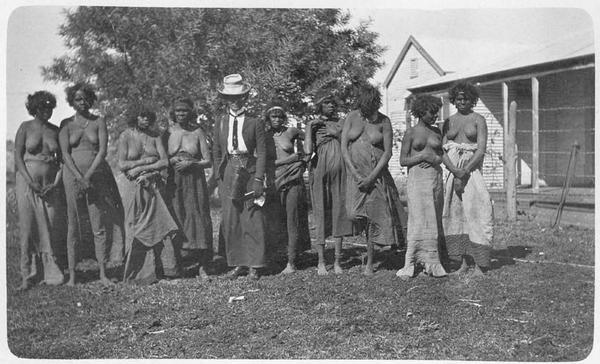



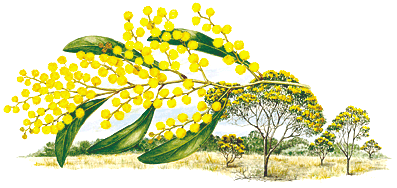


+copy.jpg)










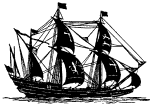





















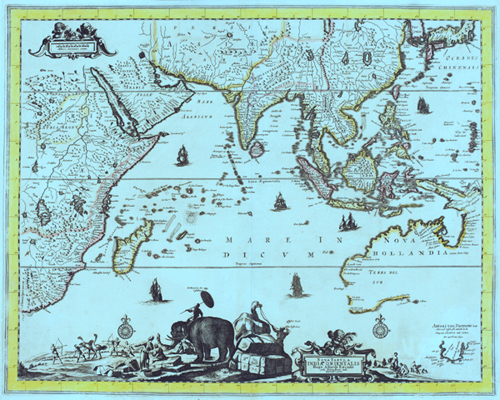

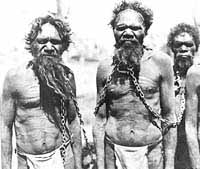
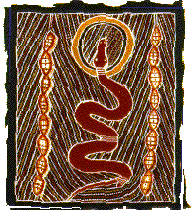


















.jpg)
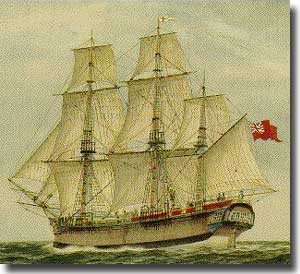

























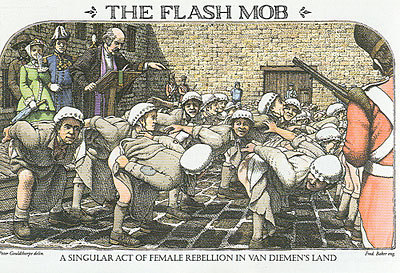
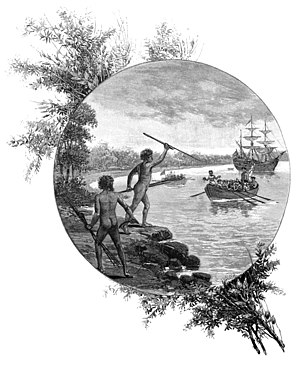 G
G







.jpg)
















No comments:
Post a Comment